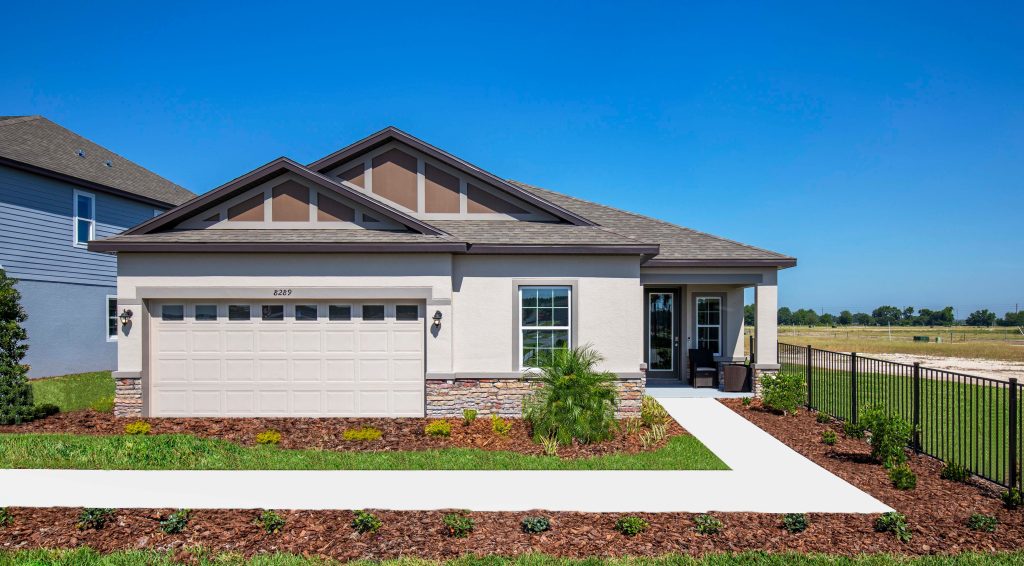Key Takeaways:
- Ultimate Durability: Block construction is highly durable, resisting fire, insects, rot, and minimizing maintenance.
- Storm Resilience: The reinforced concrete structure is ideal for Florida, offering superior strength and wind mitigation for extreme weather.
- Energy Savings: Concrete’s thermal mass helps regulate indoor temperatures, leading to reduced HVAC use and lower energy bills.
- Safety & Quiet: Block walls provide enhanced security and excellent sound insulation for a safer, quieter home.
When it comes to building a durable, energy-efficient, and low-maintenance home, block construction is making a strong case for itself—literally. While exterior wood framing has long been the standard in residential construction, block homes (also known as concrete block or CMU – concrete masonry unit – homes) are seeing renewed popularity, especially in areas prone to extreme weather or where long-term sustainability is a priority.
In this post, we’ll explore what block construction is, its key benefits, and why Maronda Homes uses this method to construct new homes in certain areas of Florida.
What Is a Block Construction Home?

A block construction home is built using concrete blocks instead of traditional wood framing for the exterior walls. These blocks are stacked and bonded with mortar, then typically reinforced with steel rebar and filled with concrete for added strength. Metal connectors, known as reinforcement strapping, are also integrated during construction to secure the structure to the roof trusses—an important feature for wind mitigation in storm-prone areas. Once the block walls are complete, the exterior can be finished with materials like drywall, stucco, brick veneer, or siding, giving the home the same appearance as a traditional wood-framed house.
What Are the Key Benefits of Block Construction?
1. Superior Durability
Block construction, or concrete block, offers exceptional durability. Structures built with blocks are highly resistant to fire, insects, and adverse weather conditions. They are less susceptible to rot, decay, and warping, making them ideal for long-term durability and minimal maintenance.
2. Energy Efficiency
Block construction exhibits superior thermal mass properties, which enable the home to store and release heat slowly. This characteristic helps regulate indoor temperatures, reducing the reliance on heating and cooling systems and resulting in energy savings.
3. Sound Insulation
Block construction provides excellent soundproofing capabilities, creating a quieter and more peaceful indoor environment. The density and thickness of the materials used in block construction contribute to effective noise reduction, enhancing privacy and comfort within the home.
4. Enhanced Security
Block construction is known for its robustness and enhanced security features. The solid nature of block walls offers increased resistance to intrusion and break-ins, providing homeowners with peace of mind and a heightened sense of security.
Where Do Block Homes Make the Most Sense?
Block construction is particularly popular in:
- Coastal areas: where high winds, humidity, and hurricanes are a concern
- Hot climates: where thermal mass helps regulate indoor temperatures
- Regions with termites or wood-eating insects: as concrete is pest-resistant
That said, with growing attention to sustainability and climate resilience, block homes are becoming more popular even outside these zones.
With advantages like energy efficiency, fire resistance, and low maintenance, it’s easy to see why more homeowners are making the switch—especially in a world where resilience and sustainability matter more than ever. If you’re considering building a new home, don’t overlook the strength and value of block construction- it might just be the solid foundation you’re looking for.
Learn More About Our Construction Process Here.
Ready to Build Your Block Construction Home in Florida? Explore all Homes Here.
